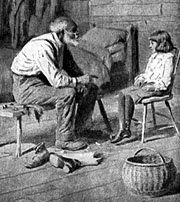SEE HERE I thought this was a bit amusing. Frankly the question of whether design can be quantified and detected seems like a reasonable scientific question. Intelligent Design is a bit of a tautology since design really implies intelligence. The Intelligent Design community have put up with a lot of slander on the part of lock-step Darwinists, mostly atheists, who see in the whole question a sneaky way of importing God into the debate. There are a few intellectual problems with this.
The first is that the existence of God in various capacities is a philosophically provable concept. Second, design clearly exists and we do it all the time. As a minimum one can make reasonable estimates of the probability that designated complexity can arise randomly. One also has the DNA codes which I personally believe with end up being the last nail in the coffin of traditional Darwinism. Evolution in the weaker sense of natural selection clearly takes place. Can it generate truly new species is a difficult question which seems to be largely answerable as sort of a little. You can certainly demonstrate that cats that don't usually interbreed can be bred and get weird results, often sterile. This is not unlike artificial breeding of plants through hybridization. Left alone they tend to revert to type.
I'm not a biologist, but I think the arguments against simple Darwinism are pretty devastating. Darwinism basically has the field to itself, since God isn't really a legitimate scientific hypothesis. Science works on the level of methodological materialism. That's not the same as materialism being true, but it is true that bringing God into science is like the universal answer without much illumination. God did it! doesn't provide too much insight generally. We can accept that in some sense God did everything through empowering it to exist and happen, but beyond that the God hypothesis isn't too much help. St. Paul does offer in the epistle to the Romans in the first chapter the observation: Romans 1:20 20 "For since the creation of the world God’s invisible qualities—his eternal power and divine nature—have been clearly seen, being understood from what has been made, so that people are without excuse."
Now if we unpack that a bit, what St. Paul is saying is that careful observation of nature reveals a designer. That's a reasonable hypothesis. The question is can it be made scientific. That's the question that complexity theory and intelligent design tries to answer. It's just dishonest to dismiss them as ideologues. It's a reasonable question and as the complexity of the DNA code becomes more and more obvious the answer will tend to look more and more obvious as well and it's likely not going to go well for Darwinism which is after all as Chesterton said absurd: “It is absurd for the Evolutionist to complain that it is unthinkable for an admittedly unthinkable God to make everything out of nothing, and then pretend that it is more thinkable that nothing should turn itself into everything.”
Wednesday, August 31, 2011
Subscribe to:
Post Comments (Atom)









No comments:
Post a Comment